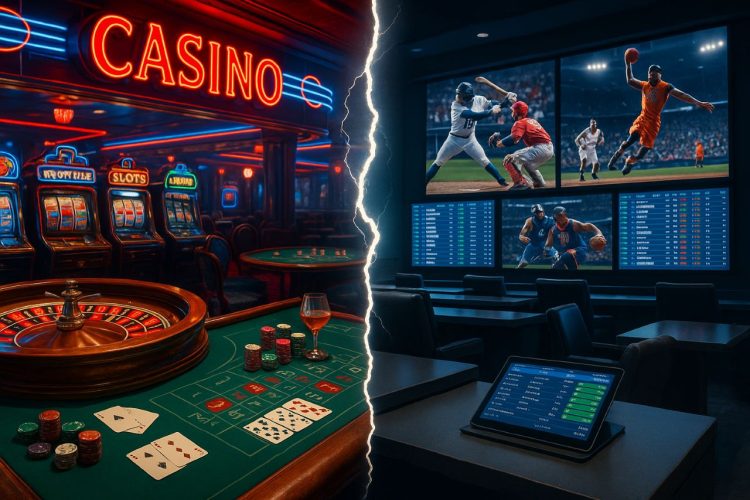
Casinos have been part of American life for decades, lighting up places like Las Vegas and tribal lands. Meanwhile, sports betting, whether wagering on games like football or baseball, stayed illegal in most areas from Maryland sportsbooks up to Oregon until 2018. Why the delay? This article digs into the historical, cultural, and political reasons sports betting trailed casinos, from moral fears to legal roadblocks, and offers a look at betting responsibly.
The Casino Compromise: How Gambling Sneaked In
Casinos found ways to exist legally while dodging moral pushback. Here’s how they did it:
- Tribal Gaming: A 1988 law let Native American tribes open casinos on their land. It was pitched as a boost for tribal economies, softening objections.
- State Lotteries: Governments framed lotteries as a choice to fund things like schools. This made them less controversial than other gambling.
- Las Vegas Magic: Vegas turned casinos into entertainment zones with shows and dining, not just betting dens. This shift helped them gain acceptance.
Casinos carved out a space, but sports betting hit different walls.
Sports Betting’s Scarlet Letter
Sports betting’s image took a beating from scandals. In 1919, the Black Sox scandal saw baseball players fix the World Series, planting fears that betting ruined sports. Later, Pete Rose’s 1989 ban for wagering on games reinforced that worry. These events made sports betting look like a danger to fair play.
Then came the 1992 law called PASPA (The Professional and Amateur Sports Protection Act). It banned sports betting in most states, backed by sports leagues worried about corruption and conservatives who saw it as wrong. Oddly, those same leagues, like the NFL, later teamed up with betting companies when they saw the profits.
The Nevada Anomaly
Surprisingly, Nevada got a pass. When PASPA hit, it let Nevada keep its sportsbooks since they were already legal. Vegas used betting as a marketing tool to attract tourists, even if it didn’t make big money. This setup was strange: betting on horse races was okay nationwide, but football bets were mostly Nevada-only.
The Tipping Point: Money Talks
In 2018, the Supreme Court tossed out PASPA. States watched casinos thrive and wanted in on the cash from illegal sports betting. Online betting and mobile apps made it simple to bet from anywhere, pushing legalization faster. What was once a complication became a goldmine.
However, some states still limit sports betting. Texas, for instance, blocks online wagers, echoing old doubts. It’s funny: once frowned upon, casinos ended up showing sports betting the way forward. The lag left a mark, but attitudes keep evolving.
Betting with Care
Sports betting’s U.S. story is about changing views and dollar signs. After years in the shadows, it’s here, but caution matters. Betting is entertainment, not a paycheck. Set a budget, keep it fun, and know when to stop.
